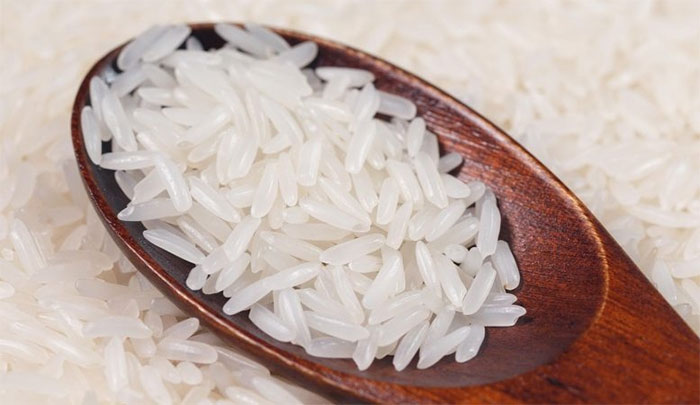Genetically modified rice prevents hypertension
In the future, taking blood pressure medication may be as simple as eating a spoonful of rice. This treatment may have fewer side effects than current blood pressure medicines.
On June 24, the scientists published their research in ACS's Journal of Agricultural and Food Chemistry, saying they created a transgenic rice that contains several anti-hypertensive peptide active ingredients . When fed to hypertensive rats, this rice helped them lower blood pressure.

Eating one tablespoon of genetically modified rice each day can help people with low blood pressure.
High blood pressure, also known as hypertension , is a major risk factor for cardiovascular disease and stroke. A group of synthetic drugs commonly used to treat hypertension, known as inhibitors of ACE , angiotensin-converting enzyme targeted (ACE), is related to regulating blood pressure. However, ACE inhibitors often have unpleasant side effects, such as a dry cough, headache, skin rash and kidney failure.
In contrast, naturally occurring yeast inhibitors found in some foods, including milk, eggs, fish, meat and plants, may have fewer side effects. But refining large amounts of these peptide inhibitors from food is costly and time-consuming.
Professor Le Qing Qu and colleagues at the Beijing Plant Science Institute in China want to genetically engineer rice, one of the most eaten foods in the world to produce a mixture of yeast-inhibiting peptides from Other food sources. (Peptides are the scientific name for protein and peptide segments made up of amino acids.)
The researchers genetically engineered rice including nine peptide inhibitors and a peptide that relaxes blood vessels together, and the results showed that the rice produced high levels of peptides. The researchers then extracted the total protein (including peptides) from the transgenic rice and fed it to mice. Two hours after treatment, the mice with high blood pressure lowered their blood pressure, while the mice treated with normal rice protein did not.
When the mice were treated for a period of 5 weeks with rice flour from genetically modified rice, the blood pressure-lowering effect lasted up to a week later. The treated mice had no obvious side effects on blood growth, development or biochemistry.
Scientists hope the peptides in transgenic rice have the same effect in humans. If so, an adult who weighs 68 kg only needs to eat about half a spoon of rice a day to prevent and treat hypertension.
- Bangladesh is about to become the first country to allow the cultivation of genetically modified golden rice
- Manipulating food security?
- Genetically modified plants still cause doubts
- China genetically engineered rice to increase productivity
- Genetically modified food in Vietnam ever since?
- Genetically modified salmon in the US is controversial
- Things you should know about GMO genetically modified foods
- Genetically modified insects threaten genetically modified plants
- Using genetically modified foods is prone to cancer
- He called on the EU to approve genetically modified corn by voting
- Legislation of genetically modified corn harmful
- Countering genetically modified corn causes cancer in mice
 Why do potatoes have eyes?
Why do potatoes have eyes? 'Tragedy' the world's largest carnivorous life: Death becomes ... public toilet
'Tragedy' the world's largest carnivorous life: Death becomes ... public toilet Tomatoes were once considered 'poisonous' for 200 years
Tomatoes were once considered 'poisonous' for 200 years Detecting microscopic parasites on human face
Detecting microscopic parasites on human face